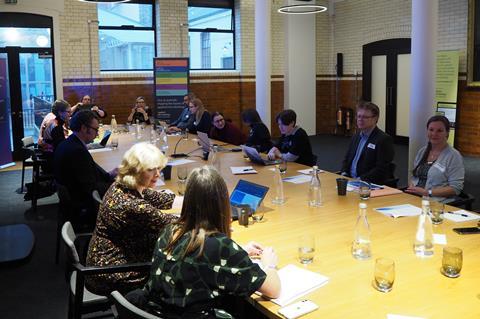Applied Microbiology International is putting together recommendations for the UK to deliver its five-year action plan on tackling antimicrobial resistance (AMR) in the run-up to 2030.
These recommendations will be published in AMI’s new journal, Sustainable Microbiology, and were formed following a closed roundtable discussion that took place in November 2022, and was hosted by AMI. This roundtable brought together industry, academic, science policy experts, and other stakeholders, to review proposals for the UK’s next five-year National Action Plan (NAP).

The UK’s current 5-year National Action Plan (NAP) on tackling antimicrobial resistance (AMR), runs from 2019 to 2024 and is coming to an end, so the next NAP is currently under development and progress made towards the UK’s commitments on AMR being analysed. This analysis has involved the publication of an addendum to the current NAP that sets out changes to the aforementioned action plan.
These changes were required to make the commitments:
-
More specific, measurable, achievable, realistic, and time-bound
-
Reflect lessons learned from the COVID-19 pandemic
-
Reflect progress that has already been made against ambitions to reduce antibiotic prescribing in food-producing animals
-
Work towards new sector targets
AMI’s roundtable discussion was set up to review these changes and provide recommendations to complement the addendum to ensure the delivery of the UK’s five-year action plan.
AMI selected specific commitments from the NAP for the discussion, based on three broad themes; human health, animal health, and collaboration and research, the latter of which included environmental health.
Attendees included:
-
Claire Anderson, President of the Royal Pharmaceutical Society.
-
Jessica Blair, Senior Lecturer, Institute of Microbiology and Infection.
-
Sarah Chadwick, AMR Programme Manager, West Yorkshire Health and Care Partnership NHS.
-
Elaine Cloutman-Green, Consultant Clinical Scientist (Infection Control Doctor) and Deputy Director of Infection Prevention and Control, Great Ormond Street Hospital.
-
Michael Corley, Head of Policy & Public Affairs, British Society for Antimicrobial Chemotherapy (BSAC).
-
Nina Garrett, R&D Director, Abingdon Health.
-
Meenakshi Gautham, Head of Economic, Social and Political Sciences at the AMR Centre, LSHTM.
-
Kitty Healey, Head of Antimicrobial Resistance, Veterinary Medicines Directorate | Department for Environment, Food and Rural Affairs (Defra)
-
Claire Hill UK Senior Account Executive. UgenTec.
-
Catherine McLaughlin, Chief Adviser (Animal Health & Welfare) at NFU (National Farmers’ Union) and Chair of RUMA.
-
Alan McNally, Professor in Microbial Evolutionary Genomics and Institute Director in the Institute of Microbiology and Infection.
-
David Pearce, Professor of Environmental Microbiology at Northumbria University.
-
Jonathan Pearce, CEO Antibiotic Research UK.
-
Adam Roberts, Senior Lecturer, Liverpool School of Tropical Medicine.
Supporting documents
Click link to download and view these filesRoundtable
Other, FileSizeText 0.15 mb







No comments yet